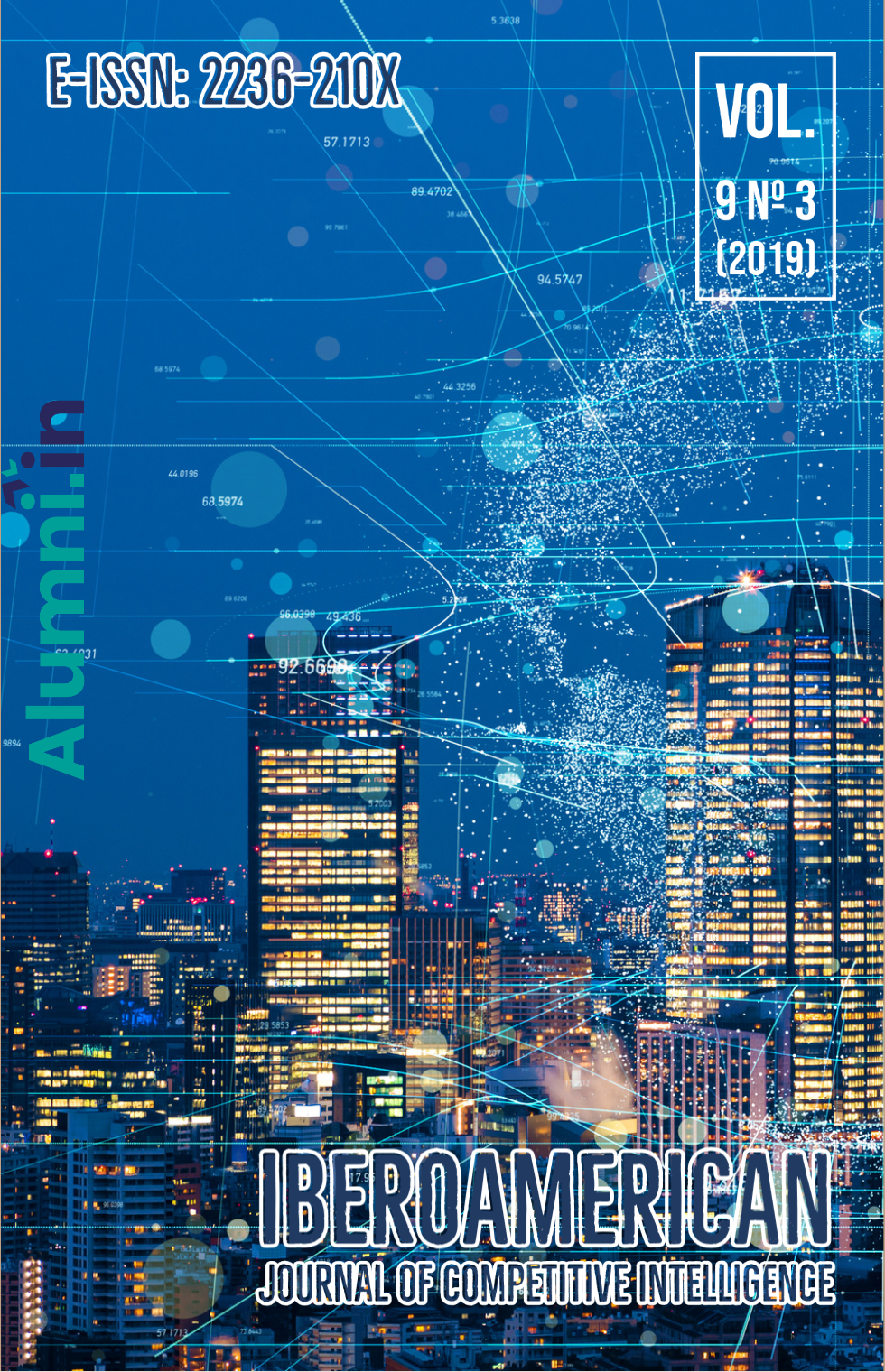Marketing Information System: A Qualitative Approach in the Natura Company
DOI:
https://doi.org/10.24883/IberoamericanIC.v9i3.329Keywords:
Marketing Information System, Decision-Making, Marketing Strategy, Natura, Market IntelligenceAbstract
Objective: The study aims to analyze how the Marketing Information System (MIS) aids decision-making in marketing within the cosmetics company Natura.
Method: A qualitative, exploratory approach was used, employing a case study based on Natura. Data were collected through semi-structured questionnaires with various marketing and business leaders within the company. Responses were compared against relevant theoretical frameworks.
Results: The results indicated that MIS plays a crucial role in decision-making by gathering, processing, and transforming data into actionable knowledge. Both internal and external data sources were deemed important, with significant reliance on consultants and market trends to improve competitiveness. The system also helps in identifying market opportunities and threats, ensuring strategic positioning.
Conclusion: The study concludes that the MIS contributes significantly to the success of marketing strategies at Natura by providing essential information for informed decision-making. However, challenges such as data fragmentation and access issues were identified, suggesting the need for better integration and training across departments.
Downloads
References
Belz, C. (2009). Inbound marketing. Marketing Review St. Gallen, 26(6), 1–1. https://doi.org/10.1007/s11621-009-0084-8 DOI: https://doi.org/10.1007/s11621-009-0084-8
Demo, P. (1995). Metodologia Cientifica Em Ciencias Sociais. Atlas.
Halligan, B., Shah, D., & Scott, D. M. (2009). Inbound marketing : get found using Google, social media, and blogs. Inbound marketing : get found using Google, social media, and blogs. https://doi.org/10.1007/s13398-014-0173-7.2 DOI: https://doi.org/10.1002/9781118257838
Hooley, G. J., Piercy, N. F., & Nicoulaud, B. (2011). Marketing Strategy and Competitive Positioning 4th Edition. Pearson/Prentice Hall.
Kotler, P., & Keller, K. (2009). Marketing management: Analysis, planning, and control. Organization.
Lakatos, E. M., & MARCONI, M. D. E. A. (2008). FUNDAMENTOS DE METODOLOGIA CIENTIFICA. ATLAS.
Lambin, J.-J. (2009). Capitalism and Sustainable Development. DOI: https://doi.org/10.4468/2009.2.02lambin
Romano, A. L., Teixeira, I. T., Alves Filho, A. G., & Helleno, A. L. (2019). Um estudo sobre a cultura organizacional no setor de cosmético brasileiro. Revista de Administração da UFSM. https://doi.org/10.5902/1983465916439 DOI: https://doi.org/10.5902/1983465916439
Sendler, U. (2017). The internet of things: Industrie 4.0 unleashed. In The Internet of Things: Industrie 4.0 Unleashed. https://doi.org/10.1007/978-3-662-54904-9 DOI: https://doi.org/10.1007/978-3-662-54904-9
Stark, R., Damerau, T., & Lindow, K. (2017). Industrie 4.0-digital redesign of product creation and production in Berlin as an industrial location: Challenges and solutions for digital transformation and innovation. In The Internet of Things: Industrie 4.0 Unleashed. https://doi.org/10.1007/978-3-662-54904-9_10 DOI: https://doi.org/10.1007/978-3-662-54904-9_10
Toledo, L. A., Madeira, A. B., Garber, M. F., & Aguero, F. H. (2019). ráticas em Marketing Sob a Perspectiva do Crowdsourcing: O caso AMAZON. FUTURE STUDIES RESEARCH JOURNAL, 1(22), 117–137.
Toledo, L. A., Moraes, C. A. De, & Garber, M. F. (2016). De la inteligencia competitiva a la gestión orientada hacia el mercado. Revista da FAE, 19(2), 77–90.
Toledo, L. A., & Shiraishi, G. F. (2009). Estudo de caso em pesquisas exploratórias qualitativas: um ensaio para a proposta de protocolo do estudo de caso. Revista da FAE Curitiba, 103–119.
Yin, R. K. (2012). Applications of Case Study Research. Recuperado de https://books.google.com/books?id=-1Y2J0sFaWgC&pgis=1
Downloads
Published
How to Cite
Issue
Section
License
Copyright (c) 2019 Journal of Sustainable Competitive Intelligence

This work is licensed under a Creative Commons Attribution 4.0 International License.
Authors who publish with this journal agree to the following terms:
1. Authors who publish in this journal agree to the following terms: the author(s) authorize(s) the publication of the text in the journal;
2. The author(s) ensure(s) that the contribution is original and unpublished and that it is not in the process of evaluation by another journal;
3. The journal is not responsible for the views, ideas and concepts presented in articles, and these are the sole responsibility of the author(s);
4. The publishers reserve the right to make textual adjustments and adapt texts to meet with publication standards.
5. Authors retain copyright and grant the journal the right to first publication, with the work simultaneously licensed under the Creative Commons Atribuição NãoComercial 4.0 internacional, which allows the work to be shared with recognized authorship and initial publication in this journal.
6. Authors are allowed to assume additional contracts separately, for non-exclusive distribution of the version of the work published in this journal (e.g. publish in institutional repository or as a book chapter), with recognition of authorship and initial publication in this journal.
7. Authors are allowed and are encouraged to publish and distribute their work online (e.g. in institutional repositories or on a personal web page) at any point before or during the editorial process, as this can generate positive effects, as well as increase the impact and citations of the published work (see the effect of Free Access) at http://opcit.eprints.org/oacitation-biblio.html
• 8. Authors are able to use ORCID is a system of identification for authors. An ORCID identifier is unique to an individual and acts as a persistent digital identifier to ensure that authors (particularly those with relatively common names) can be distinguished and their work properly attributed.













